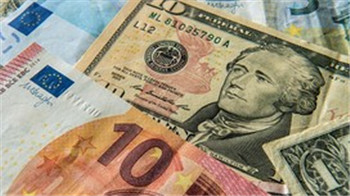
China’s foreign exchange reserves fell by $108bn in December to $3.33tn, a bigger fall than expected and the biggest monthly drop on record.
去年12月,中國外匯儲備下降1080億美元,至3.33萬億美元,降幅超過預期,同時也是有記錄以來最大的單月降幅。
Economists were expecting reserves of $3.42tn.
經濟學家曾普遍預期去年12月中國外匯儲備為3.42萬億美元。
The big fall underscores a key point: the People’s Bank of China is fighting the market to keep the renminbi up, not steering it lower as some suspect.
外儲大降凸顯出很重要的一點:中國央行正在與市場抗爭、以力挺人民幣,而不是如有些人猜測的那樣操縱人民幣貶值。
Reserves have been falling since June 2014, when they peaked at nearly $4tn. They’ve since fallen almost every month, for a cumulative 16.6 per cent, as the central bank sells dollars from its reserves to curb renminbi weakness. The rate hike by the US Federal Reserve last month will also have prompted outflows.
中國外匯儲備在2014年6月達到近4萬億美元的峰值,此后不斷下降。隨著中國央行出售美元儲備以抑制人民幣走弱,中國外匯儲備幾乎每個月都有所下降,迄今的累積降幅為16.6%。上月美聯儲(Fed)加息也加劇了中國的資本外流。
China’s forex reserves — the world’s largest —are seen as an ultimate guarantor of financial stability as they can be used to hedge against capital flight or to bail out domestic financial institutions struggling with a rise in bad debts.
中國擁有全球最多的外匯儲備,它們一直被視作金融穩(wěn)定的最終保障,因為它們可被用來對沖資本外逃、或救助正努力應對壞賬增加的國內金融機構。
In August, the month the PBoC devalued the currency and tweaked the way if “fixes” the daily rate, reserves fell by $93.9bn – the most on record until this new data set.
去年8月,中國央行調整了人民幣匯率中間價形成機制并讓人民幣貶值,當月外匯儲備下降了939億美元,在當時創(chuàng)下了最大月度降幅紀錄。這個紀錄已被上述新數據打破。











